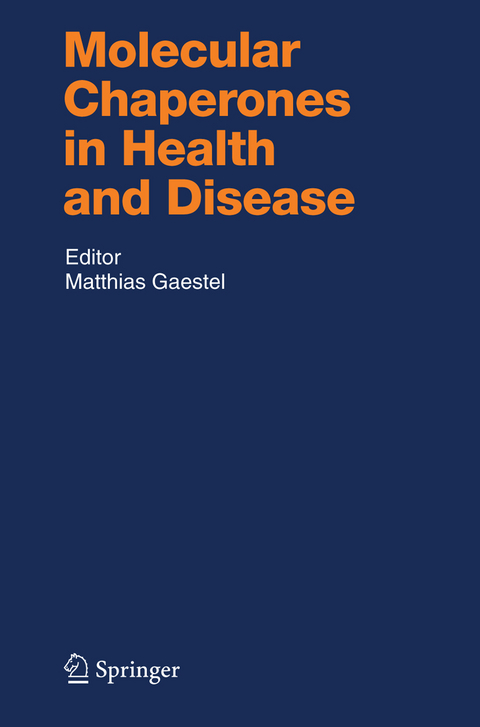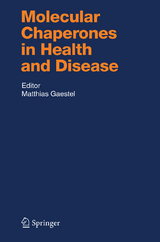Molecular Chaperones in Health and Disease
Springer Berlin (Verlag)
978-3-540-25875-9 (ISBN)
Molecular chaperones are involved in a wide variety of essential cellular processes in living cells. A subset of molecular chaperones have been initially described as heat shock proteins protecting cells from stress damage by keeping cellular proteins in a folding competent state and preventing them from irreversible aggregation. Later it became obvious that molecular chaperones are also expressed constitutively in the cell and are involved in complex processes such as protein synthesis, intracellular protein transport, post-translational modification and secretion of proteins as well as receptor signalling. Hence, it is not surprising that molecular chaperones are implicated in the pathogenesis of many relevant diseases and could be regarded as potential pharmacological targets. Starting with the analysis of the mode of action of chaperones at the molecular, cellular and organismic level, this book will then describe specific aspects where modulation of chaperone action could be of pharmacological and therapeutic interest.
Chaperones in Preventing Protein Denaturation in Living Cells and Protecting Against Cellular Stress.- Feedback Regulation of the Heat Shock Response.- Protein Folding in the Endoplasmic Reticulum and the Unfolded Protein Response.- Molecular Chaperones in Signal Transduction.- Chaperoning of Glucocorticoid Receptors.- Heat Shock Response: Lessons from Mouse Knockouts.- HSFs in Development.- Heat Shock Proteins: Endogenous Modulators of Apoptotic Cell Death.- Protein Aggregation as a Cause for Disease.- The Role of Chaperones in Parkinson's Disease and Prion Diseases.- Chaperoning Oncogenes: Hsp90 as a Target of Geldanamycin.- Heat Shock Proteins in Immunity.- Molecular Chaperones and Cancer Immunotherapy.- Hsp90 Inhibitors in the Clinic.- Pharmacological Targeting of Catalyzed Protein Folding: The Example of Peptide Bond cis/trans Isomerases.- Chemical Chaperones: Mechanisms of Action and Potential Use.- Pharmacological Modulation of the Heat Shock Response.
| Erscheint lt. Verlag | 27.9.2005 |
|---|---|
| Reihe/Serie | Handbook of Experimental Pharmacology |
| Zusatzinfo | X, 442 p. 34 illus., 5 illus. in color. |
| Verlagsort | Berlin |
| Sprache | englisch |
| Maße | 155 x 235 mm |
| Gewicht | 704 g |
| Themenwelt | Medizin / Pharmazie ► Medizinische Fachgebiete ► Pharmakologie / Pharmakotherapie |
| Medizin / Pharmazie ► Pharmazie | |
| Naturwissenschaften ► Biologie ► Biochemie | |
| Naturwissenschaften ► Biologie ► Zellbiologie | |
| Schlagworte | Chaperone • Heat shock proteins • Molecular mechanisms • Molekularmedizin • Post-translational modification • Protein • Protein / Eiweiß • Protein Folding • signal transduction • Stress response • Translation |
| ISBN-10 | 3-540-25875-2 / 3540258752 |
| ISBN-13 | 978-3-540-25875-9 / 9783540258759 |
| Zustand | Neuware |
| Informationen gemäß Produktsicherheitsverordnung (GPSR) | |
| Haben Sie eine Frage zum Produkt? |
aus dem Bereich




